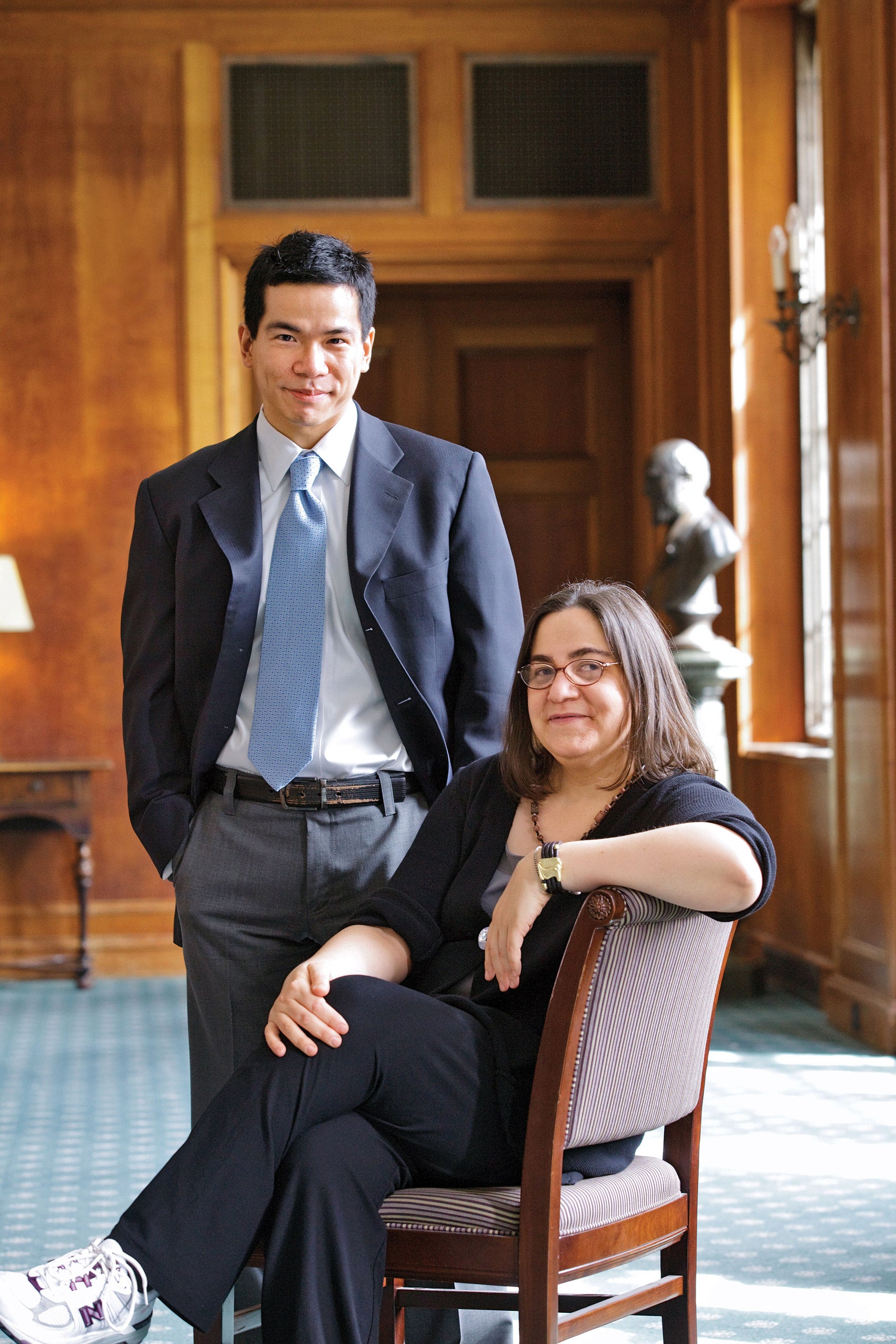At HLS there’s a method for producing future law professors. (That, plus an oracle.)
Lisa Bernstein ’90 knew from her first day of law school that she wanted to be a professor, though as time went on, she wondered whether that would be possible without top grades or law review credentials. What helped to set her apart from other applicants, she says, was the paper she wrote—and mentoring she received—as an Olin Fellow during law school.
“That support made all the difference,” says Bernstein, now a law professor at the University of Chicago. “I would not have gotten a teaching job without the fellowship paper.”
Each year, only 15 to 20 Harvard Law School students receive John M. Olin Fellowships in Law and Economics. But alumni of the program such as Bernstein have enjoyed outsized success landing legal academic jobs.
In fact, the annual number of Olin Fellows who get positions on top law school faculties often exceeds the number of successful applicants from the entire graduating class of other leading law schools, apart from Yale and HLS itself, according to Professor Steven M. Shavell, director of the John M. Olin Center for Law, Economics, and Business at the school.
The Olin Fellowship is just one of many efforts at HLS to help current students and alumni pursue academic careers. There is also advising by the Office of Academic Affairs and a postgraduate research program added in recent years.
But over the course of more than two decades, the Olin Fellowship has racked up a particularly noteworthy record, one Shavell says is due to the individualized attention faculty devote to training and mentoring Olin Fellows during their time at the law school—and beyond.
The formal requirements are straightforward. In return for a research stipend, each fellow is expected to write a research paper under the guidance of a faculty adviser. Students have presented their findings at the law and economics seminar as well as the American Law & Economics Association, among other national and international conferences.
The opportunity appealed to Daniel Chen ’09, who arrived at the law school after completing a Ph.D. in economics at M.I.T. Chen had already set his sights on an academic career, but he credits Olin faculty including Shavell and Louis Kaplow ’81 with helping funnel his excitement about potential areas of research into more concrete questions.
For his paper, Chen explored how laws prohibiting sexual harassment affect gender equality and found the laws actually improve labor market outcomes for females relative to males.
The stipend helped Chen hire research assistants to code appellate court decisions and damage awards. He presented his paper as a work in progress at the Olin workshop, where fellow students with backgrounds in a variety of disciplines offered their views.
“It was very helpful to get their feedback early on in a safe setting,” says Chen, who will start as an assistant professor at Duke Law School after finishing up a fellowship at the University of Chicago this year.
Not every Olin Fellow arrives with an advanced degree or a road map to academia.
Guhan Subramanian ’98, J.D./M.B.A., credits the fellowship he received with convincing him to pursue an academic career. What was most striking for Subramanian was the way Kaplow treated him and his fellow students just like the faculty who attended Olin seminars.
“Engaging on an equal footing with faculty made me think I could be an academic,” says Subramanian, who is now a professor at both Harvard Law School and Harvard Business School.
Subramanian says the feedback he received was helpfully pointed. “Many people in the academic world want to heap praise on mentees, whereas Louis and Steve tell you all the ways [the work] can be better,” he says.
Shavell says the goal is to make sure every fellow has a polished paper ready for publication in law reviews or other academic journals. He also invites fellows to return to campus for mock job talks where they further refine their presentations before entering the job market.
Equally important to Tom Miles ’03 was the exposure to academic values and academic training and the mentoring that professors such as Kaplow, Shavell and Howell Jackson ’82 provide.
“They were extremely helpful in thinking about the path into academia and what steps were necessary in order to begin an academic career,” says Miles, who is now an assistant professor at the University of Chicago Law School.
The advocacy for students continues behind the scenes, with faculty making calls on their behalf to other law schools. “We champion these people and try to help them find jobs that are appropriate given their skill set,” Shavell says.
Bernstein says she tries to replicate what Shavell has developed with the Olin Fellowship with her own students who want to become professors.
When it comes to charting an academic career, Bernstein says, “Steve is the oracle at Delphi.”
